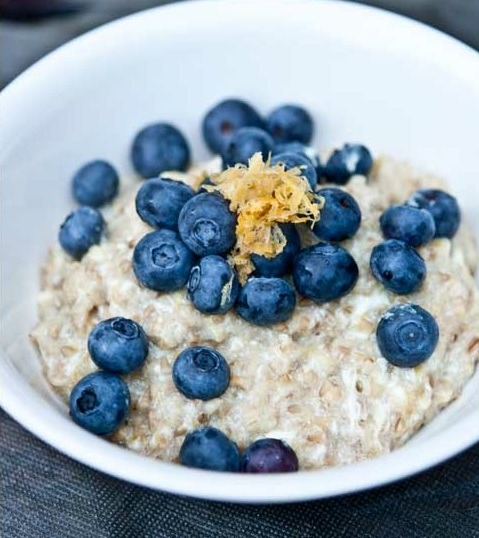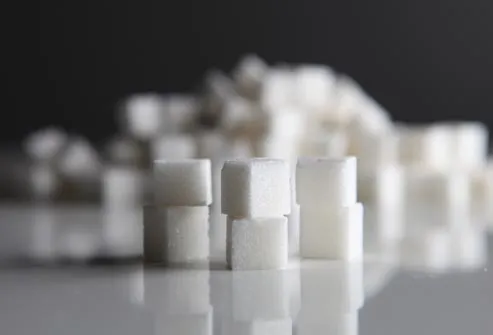Sugar Detox: Hype or Hope?
A trendy sugar detox diet promises to end your craving for sweets and help you lose weight. But does it work? Here's the truth about sugar cravings and how to tame your sweet tooth.
Can You Really Be Hooked on Sugar?
Some people use sugary foods in ways that aren't healthy, even though it may not be an actual addiction. Some signs: You crave sugar, lose control, and eat more than you planned.
Your Brain on Sugar
Sugar fuels every cell in the brain. Your brain also sees sugar as a reward, which makes you keep wanting more of it. If you often eat a lot of sugar, you're reinforcing that reward, which can make it tough to break the habit.
Quick Sugar Highs ...
Why do you get a rush when you eat a midday candy bar? The sugar in it -- called a simple carbohydrate -- is quickly turned into glucose in your bloodstream. Your blood sugar levels spike. Simple carbs are also found in fruits, veggies, and dairy products. But these have fiber and protein that slow the process. Syrup, soda, candy, and table sugar don't.
… And Sugar Lows
Your body needs to move glucose out of the bloodstream and into your cells for energy. To do this, your pancreas makes insulin, a hormone. As a result, your blood sugar level may have a sudden drop. This rapid change in blood sugar leaves you feeling wiped out and shaky and searching for more sweets to regain that sugar "high." So that midday candy bar has set you up for more bad eating.
Starch Can Equal Sugar
Think you don't have a sweet tooth, but crave bagels, chips, or french fries? These starchy foods are complex carbs that the body breaks down into simple sugars. Eaten without better foods, starches can make blood sugar surge and crash like sugar. White rice, white flour, and potatoes do this. Highly refined starches like white bread, pretzels, crackers, and pasta are worst.
Do Sugar Detox Diets Work?
Can you beat your sugar habit by quitting cold turkey? Some sugar detox plans urge you to avoid all sweets. That means all fruit, dairy, and refined grains. The idea is to purge your system of sugar. Diet changes like this are too drastic to keep up. Changes that you can do only for the short term mean you'll fall back to your old habits.
Retrain Your Taste Buds
You don't need sugar as much as you think you do. In fact, you can train your taste buds to enjoy things that aren't as sweet. Try cutting out one sweet food from your diet each week. For example, pass on dessert after dinner. Start putting less sugar in your coffee or cereal. Over time, you will lose your need for that sugar taste.
Choose Good-for-You Sweets
You don't have to give up sweetness. Just get it from other sources. Try fresh berries or pureed fruit on oatmeal instead of sugar. Explore fruit that's dried, frozen, or canned (without too much added sugar). A glass of low-fat milk or low-sugar yogurt can help.
Kick the Habit in Baby Steps
If you make small, simple changes to your diet, it's easy to keep them up. Start by eating more fruits and vegetables. Drink extra water. Check food labels, and pick those that don't have a lot of sugar. Cut out a little bit of sugar each week. After a few weeks, you'll be surprised at how little you miss it.
Let Protein Help
Eating protein is an easy way to curb sugar cravings. High-protein foods digest more slowly, keeping you feeling full for longer. Protein doesn't make your blood sugar spike the way refined carbs and sugars do. Pick proteins like lean chicken, low-fat yogurt, eggs, nuts, or beans.
Fill Up on Fiber
Fiber helps fight a sugar itch in many ways. First, it keeps you full. High-fiber foods also give you more energy. Because they don't raise your blood sugar, there's no hungry crash after. Choose fruits, vegetables, and whole grains. Or smear some peanut butter on an apple for a protein/fiber combo.
Get Outside
Exercise can help wipe out those sugar cravings and change the way you eat in general. You start to feel better and want healthier foods. Do what you like, such as walking, riding your bike, or swimming. Start out slow, and work toward at least 30 minutes at a time, 5 days a week.
Can Artificial Sweeteners Help?
Some studies suggest artificial sweeteners may leave you craving more sugar. That could make it harder to control your weight. The problem is, some experts say, that artificial sweeteners don't help you break your taste for sweets. Pay attention to your body. Are sweeteners making you crave even more sugar? If so, look elsewhere for that sweet taste.
Limit the 'Healthy' Sugars, Too
Honey, brown sugar, and cane juice may sound healthy. But sugar is sugar. Whether it comes from bees or sugar cane, it can cause your blood sugar to rise. Honey and unrefined sugars are slightly higher in nutrients, but their calories still count.
How Much Sugar Is Too Much?
If you're like most people in the U.S., you eat 19 teaspoons or more of added sugar a day. That adds up to 285 calories, which health experts say is way too much. How much sugar should you be eating? No more than 6 teaspoons daily for women. That's 100 calories. Men should get a max of 9 teaspoons. That's 150 calories.
Sugar by Any Other Name
You don't always see the word "sugar" on a food label. It sometimes goes by another name, like these:
- Agave nectar
- Brown rice syrup
- High-fructose corn syrup
- Dextrose
- Evaporated cane juice
- Glucose
- Lactose
- Malt syrup
- Molasses
- Sucrose
Watch out for items that list any form of sugar in the first few ingredients, or have more than 4 total grams of sugar.
Scout Out Hidden Sugar
Sugar can hide in foods where you least expect it. Although they don't seem sweet, ketchup, barbecue sauce, and pasta sauce can have loads of sugar. So can reduced-fat salad dressings, bread, baked beans, and some flavored coffees. Get in the habit of reading labels. Filter out high-sugar foods before they hit your shopping cart.
Does Sugar Cause Diabetes?
Sugar itself doesn't cause diabetes. But lots of sugar splurges can point you there. Too much of anything, including sugar, can pack on pounds, for one thing. Heavy bodies have a harder time using insulin, the hormone that controls blood sugar. When your body resists insulin, blood sugar and your risk of diabetes go up.
How much sugar is in your diet? Do you indulge a little too much? What strategies do you implement to help divert you from snacking on sugary, high-cal foods? Comment below!
Source
http://www.webmd.com/diet/ss/slideshow-sugar-addiction
Reviewed by Michael W. Smith, MD on /2, 14 1
This tool does not provide medical advice. See additional information
© 2014 WebMD, LLC. All rights reserved.






No comments:
Post a Comment